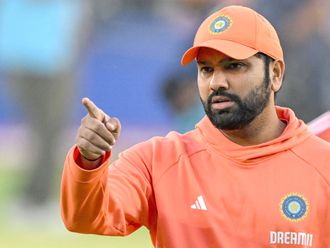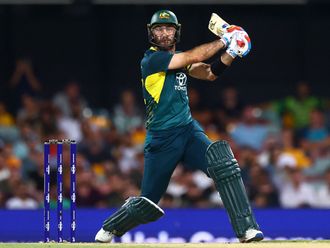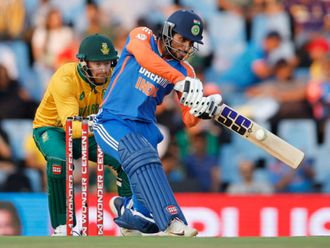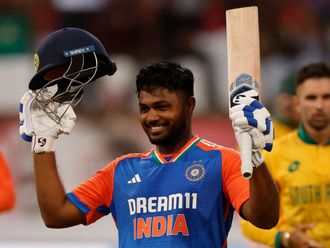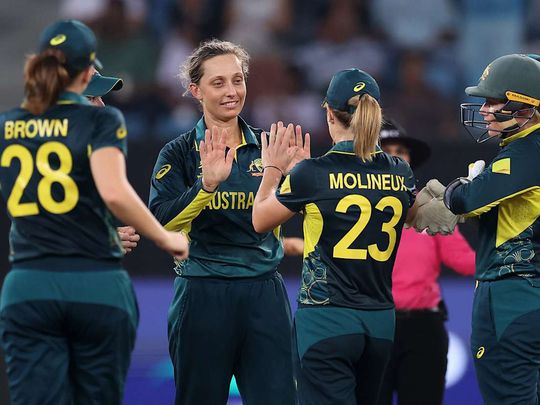
Dubai: The wheat has been separated from the chaff. Australia, the West Indies, South Africa and New Zealand will contest the semi-finals of the Women’s T20 World Cup.
The four were the best teams on view although England would consider themselves unlucky to have missed out. The former champions, led by Heather Knight, were unbeaten until they ran into the West Indies, who produced their best performance of the tournament.
That wasn’t the case with India, who were left to rue the loss against New Zealand in their first match and were left playing catchup. True, Harmanpreet Kaur’s side ran Australia close in a crunch game, but the defending champions had the skill and composure to wriggle out of tight situations.
The rest of the teams never made a run for the last-four phase. Sri Lanka were a pale shadow of the team that won the Asian title, and the islanders, led by Chamari Athapaththu, went home without a win. They bowled well but were undermined by poor fielding and fragile batting.
Pakistan had only the win against Sri Lanka to show. They were without the services of skipper Fatima Sana for the Australia match as she had to rush home following her father’s demise. Yet that didn’t matter since the team lacked solidity in batting and could not build on the superb show by the spinners led by Sadia Iqbal.
No Asian teams
The original hosts, Bangladesh, could only get past World Cup debutants Scotland, which doesn’t make for a good tournament. The bowlers produced tidy spells on spin-friendly pitches, but the batters let down badly.
There’s little point in crying over spilt milk, although post-mortems have begun over the exits of the Asian teams, which was surprising. The UAE may be a neutral venue, but the belief was that the conditions would favour Asians. Barring Scotland, none of the other teams had played in the country. So the Asian sides were better equipped to handle the heat and humidity.
That notion was way off the mark as evident from the league results. The Asians wilted not from the heat but from the professional displays of more talented teams.
The UAE wickets aided spin, the forte of Asian teams. The tournament showed all teams possess quality spinners who could turn matches around.
Amelia Kerry’s blend of leg-spin and googlies and Eden Carson’s off-breaks lifted New Zealand to victories, while Sophie Molineux and Ashleigh Gardner provided the Aussie spin challenge. Captain Hayley Matthews’s off-spin and Afy Fletcher’s leg-breaks served the West Indies well, and South Africa rode to victories on the strength of Nonkululeko Mlaba’s slow left-arm spin.
As spinners thrived, the wins were shaped by batters who could adapt to the turn and low bounce, especially in Sharjah. That required plenty of patience and good technique. New Zealand openers Georgia Plimmer and Suzie Bates showed the value of going big in the powerplay, and the West Indies openers Matthews and Qiana Matthews took a leaf out of the Kiwi playbook to down England in the Group B decider.
Captain Laura Wolvaardt and Tazmin Brits too weren’t far behind, while skipper Alyssa Healy played the powerplay aggressor for Australia until she hobbled off the field with an injury.
Healy’s absence didn’t hamper the Australian side, whose talent runs deep. Grace Harris stepped into the breach to lash the Indian bowlers, and Healy wasn’t missed. The Aussies are not totally reliant on their spinners either as pacers Megan Schutt and Annabel Sutherland weighed in with wickets at critical junctures.
Australia have been the complete side in the tournament. Their fielding and running between the wickets have been the best of the competition. Although the Aussies haven’t been at their imperious best, they still packed enough ammunition to defeat the rivals. Unless the West Indies spring another surprise, Australia should canter to their seventh T20 World Cup triumph in nine editions.


